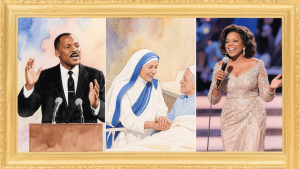Ozzy Osbourne MBTI type offers a fascinating lens into the personality of the legendary rock icon, exploring how his cognitive functions, quirks, and creative drive reflect a deeper psychological structure.
Introduction
When people think of Ozzy Osbourne, images of wild stage antics, heavy metal anthems, and eccentric humor instantly come to mind. But beyond the theatrics lies a deeper question: what is Ozzy Osbourne MBTI type? By exploring his behaviors, career decisions, interviews, and life patterns, we can uncover how the framework of the Myers-Briggs Type Indicator (MBTI) explains his unique personality. This article dives into Ozzy Osbourne MBTI type in detail, using both psychological analysis and historical context, to understand the man behind the music.
The Enigma of Ozzy Osbourne
Ozzy Osbourne, born John Michael Osbourne in Birmingham, England, rose to fame as the frontman of Black Sabbath and later built a legendary solo career. Known as the “Prince of Darkness,” he has always balanced contradictions: chaos and creativity, unpredictability and persistence, eccentricity and vulnerability.
Fans and psychologists alike have speculated on Ozzy Osbourne MBTI type, with many leaning toward ESFP—the “Performer” type. ESFPs are known for being energetic, spontaneous, and expressive, which matches Ozzy’s stage presence. However, others argue that elements of ENFP or even ENTP appear in his personality, particularly his witty humor and constant curiosity.
Why MBTI Matters for Ozzy Osbourne
Understanding Ozzy Osbourne MBTI type is not just a fun exercise—it provides insights into how he approached creativity, fame, relationships, and challenges like addiction and reinvention. MBTI helps us decode:
His stage charisma and showmanship His impulsive decisions and controversies His enduring relevance despite decades in the spotlight His unique balance of vulnerability and eccentricity
By analyzing Ozzy Osbourne MBTI type, we not only understand his artistry but also gain a clearer perspective on how personality shapes cultural icons.
ESFP Traits in Ozzy Osbourne
Let’s break down why ESFP is the strongest candidate for Ozzy Osbourne MBTI type.
1. Love for Performance
ESFPs are often described as “Entertainers,” thriving on stage and captivating audiences. Ozzy embodies this fully, with his wild concerts, bat-biting antics, and intense connection with fans.
2. Living in the Moment
ESFPs are spontaneous and impulsive. Ozzy has admitted in interviews that he rarely planned far ahead and often made decisions on instinct, from musical collaborations to lifestyle choices.
3. Emotional Expression
Ozzy is highly expressive—whether through his lyrics, laughter, or candid interviews. ESFPs wear their hearts on their sleeves, which explains why fans often feel a deep emotional bond with him.
4. Adventurous Spirit
From experimenting with different musical styles to embracing reality TV with The Osbournes, Ozzy constantly seeks new adventures. This aligns perfectly with ESFP’s desire for novelty.
5. Connection with People
ESFPs thrive on relationships and social bonds. Despite his eccentric image, Ozzy has remained a devoted family man, cherishing his bond with Sharon and his children.
ENFP and ENTP Possibilities
While ESFP seems the most fitting, some traits point to ENFP or ENTP.
ENFP (The Campaigner): ENFPs are creative, enthusiastic, and deeply values-driven. Ozzy’s lyrics often reveal philosophical and emotional depth, suggesting strong intuitive tendencies. For example, songs like Changes and Dreamer show a reflective, idealistic side that aligns with ENFP traits.
ENTP (The Debater): ENTPs love challenges, humor, and breaking rules. Ozzy’s rebellious image and constant boundary-pushing—whether on stage or in interviews—reflect this side of his personality. His knack for improvisation, quick-witted comebacks, and irreverent humor often resemble ENTP behavior.
Thus, Ozzy Osbourne MBTI type may blend multiple layers, making him an intriguing case of personality complexity.
Ozzy’s Life Through the Lens of MBTI
Childhood and Early Life
Growing up in post-war Birmingham, Ozzy struggled with dyslexia and left school early. ESFPs often dislike rigid academic structures but shine in creative, hands-on fields, which perfectly describes his early path toward music. He has openly admitted that music gave him a sense of identity and belonging.
Rise with Black Sabbath
His spontaneous creativity, ability to embody dark themes, and love for shocking audiences point to ESFP energy. MBTI analysis shows how his natural charisma helped him become the voice of heavy metal. He wasn’t the mastermind behind every riff—that was often Tony Iommi—but his ability to deliver lyrics with raw emotion gave Black Sabbath its soul.
Solo Career
Launching a solo career after Black Sabbath required resilience and adaptability. Ozzy’s MBTI traits—particularly extroversion and flexibility—helped him reinvent himself successfully. Collaborating with Randy Rhoads, he created some of the most memorable songs of his career, proving his ability to thrive in new creative environments.
Family and The Osbournes Reality Show
The Osbournes gave fans an intimate look at his personal life. His humor, warmth, and chaos all align with ESFP traits, while his openness about struggles showed vulnerability. Many ENFP fans also recognized his ability to make serious conversations lighthearted, while maintaining authenticity.
The Dark Side of ESFP: Struggles and Addiction
Ozzy Osbourne MBTI type also helps explain his well-documented struggles with addiction. ESFPs are highly sensory-driven and can fall into impulsive, pleasure-seeking behaviors. For Ozzy, this translated into decades of substance abuse, which he later confronted publicly.
This darker side of ESFP shows how strengths—like living in the moment—can become weaknesses when not balanced. Ozzy himself has often reflected on how his desire to feel everything intensely led him down destructive paths.
Creativity and MBTI
Ozzy’s songwriting and stage persona were fueled by ESFP qualities:
Sensory detail in lyrics that describe vivid, often haunting imagery. Emotional storytelling that captures both pain and triumph. Spontaneity in performance, which made every live show unpredictable. Collaboration with diverse musicians, showing flexibility and openness.
ENFP and ENTP tendencies also show up in his creativity—constantly experimenting with themes, blending genres, and refusing to be confined by expectations.
Cultural Impact of Ozzy’s Personality
The importance of Ozzy Osbourne MBTI type goes beyond his personal psychology—it reflects why he became a cultural icon.
Authenticity: ESFPs are genuine, and Ozzy’s openness about his flaws resonated with millions. Relatability: Despite fame, he remained approachable, humorous, and down-to-earth. Adaptability: From the 1970s to the 2020s, Ozzy reinvented himself while staying true to his essence. Symbolism: His “Prince of Darkness” image represented rebellion, individuality, and freedom—traits loved by ESFP personalities.
Lessons from Ozzy’s MBTI Type
Ozzy Osbourne MBTI type teaches us important lessons about personality:
Strengths and weaknesses are connected: His charisma and impulsivity came from the same core traits. Authenticity wins long-term: By embracing his personality fully, Ozzy stayed relevant for decades. Creativity thrives on flexibility: ESFP and ENFP tendencies helped him adapt across generations. Vulnerability builds connection: His openness about addiction, illness, and family life made him relatable beyond the stage.
Conclusion
Ozzy Osbourne MBTI type is best described as ESFP, the natural performer, though he displays layers of ENFP and ENTP. This personality framework explains his charisma, creativity, impulsivity, and resilience. By studying his MBTI profile, we better understand not only the man but also the enduring legend of the “Prince of Darkness.” His story reminds us that personality is both a gift and a challenge, shaping not only personal destiny but also cultural history.
Most evidence points to ESFP, though some argue he has traits of ENFP or ENTP.
Because his life reflects ESFP qualities: charisma, spontaneity, performance energy, and emotional expression.
Yes. ESFPs can be impulsive and pleasure-seeking, which aligns with his history of addiction and risk-taking.
Absolutely. His emotional, sensory-driven personality shaped the intensity of his performances and the raw honesty in his lyrics.
While his core type likely remains ESFP, life experiences may have emphasized his reflective ENFP side in later years.






